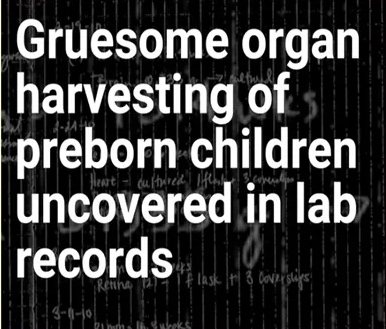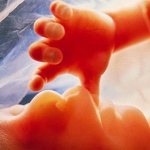Written by Fr. Ambrose Astor
Published by Lumen Fidei Institute https://www.lumenfidei.ie
Having established that both conscience and prudence forbid the reception of COVID-19 vaccines, Father Ambrose now explains, especially for priests, why getting vaccinated is not the “loving thing to do”.


If there is one adjective the common sentiment identifies with a good Christian, it is no doubt “loving”. A good Christian, in imitation of Christ, seeks to love all, especially those in need. This objective notion of charity however, particularly in the current climate, is easily contorted into a subjective notion based on emotions and feelings. Over the last two years a number of attitudes that contravene basic medical principles and human rights have been promoted under the guise of a false charity – from wearing masks, to the lockdown of the healthy, the isolating of the sick at home until they deteriorate, and the abandonment of the elderly in order to ‘protect them’ – the list of ‘loving things to do’ grows longer. More recently the ‘loving thing to do’ is to get vaccinated – the rationale being that by doing so we are protecting the lives of others.
A number of prelates have exploited this noble Christian sentiment by ignoring objective moral and medical facts. If we truly love our neighbour, they tell us, we must leave behind our preferences, accept any disadvantages, and take the jab. Then we will be showing that we really care about others, for then we will be protecting them from a deadly virus. Some of these prelates even refer to a ‘moral obligation’ to take the vaccine. Conversely, the refusal to do so would be proof of egotism and self-love, turning the other way and exposing others to risk. What are we to make of this? At face value, if one accepts the current narrative, it seems to make perfect sense.
However, St Paul tells us that it is not permissible to do evil so that good may come of it (cf Rm 3:8). This is a very important concept with vast consequences for the present question. In Article 1 of this series Conscience and Vaccines1, we learned that all vaccines presently available have been developed from cell lines obtained by the vivisection and murder of a human foetus. The conclusion was that, even though a case can be made in certain extreme situations for an ethical use of such vaccines by what the Congregation for the Doctrine of the Faith has called remote, material cooperation, the grave conditions required for this do not ordinarily exist and therefore one cannot in good conscience receive these vaccines.
In the second article of this series Prudence and Vaccines2, we considered a number of other medical issues such as the startling lack of safety or efficacy of these vaccines – which in reality are properly termed gene therapies – and also their potential to facilitate and spread disease as well as permanently alter the human immune system (and other parts of the human genome) at the genetic level. We also considered ethical issues around the grave violation of the Natural Law and the Nuremberg Code, and social issues around the creation of a two-tiered system of ‘medical apartheid’ which evokes comparisons with dark periods of history such as the segregation of Jews in Nazi Germany. The conclusion was that it is gravely imprudent to take the risk of receiving the vaccine.
We now arrive at considerations on the virtue of Charity which, in order to be authentic, must be based on objective truth. St Maximilian Kolbe, who died a victim of the Nazi ideology which began with methods of control very similar to those being enforced today, wrote: ‘No one in the world can change Truth. What we can do and should do is to seek truth and to serve it when we have found it. The real conflict is the inner conflict. Beyond armies of occupation and the hecatombs of extermination camps, there are two irreconcilable enemies in the depth of every soul: good and evil, sin and love. And what use are the victories on the battlefield if we ourselves are defeated in our innermost personal selves?’ Keeping this background in mind, let us now turn to the queen of virtues, charity.
Q. First of all, what is charity, and is there an order to be observed in its practice?
A. As an infused virtue, charity inclines us to love God above all things in the same way as He loves Himself and to love all things that God loves in the same way that He loves them. God is to be loved first, above all things, and His commandments always take precedence over any other considerations, however urgent they might be: Thou shalt love the Lord thy God with thy whole heart and with thy whole soul and with thy whole mind. This is the greatest and the first commandment (Mt 22:37-38). Committing a sin against God can never be tolerated in any circumstances, for to commit sin is to offend God and therefore it is to fail to love Him. If you love me, keep my commandments, Our Lord tells His apostles (Jn 14:15).
Second, one must love one’s neighbour as one’s self, which implies that love for oneself precedes love for neighbour. And the second is like to this: Thou shalt love thy neighbour as thyself (Mt 22:39). To love neighbour is to love him as God loves him, and to want what is really good for him, namely what makes him a virtuous person and helps him save his soul.
Two very important consequences follow from this. The first is that to do for our neighbour anything that is sinful cannot be a true manifestation of love. The second is that it’s not about doing things that make me feel good about myself, but things that really are of benefit to my neighbour. Since the notion of charity can be easily influenced by subjective feelings, it is essential to be attentive to the objective order of the good in order to ascertain whether or not an action is truly charitable. For example, Catholic parents whose baptised child intends to marry in a civil ceremony outside the Church may want to support their child’s decision and attend the ceremony in order to ‘keep the peace’. Objective charity, however, demands that these parents inform their child that they cannot attend the ceremony due to the demands of the moral law. This would of course cause emotional discomfort for both child and parents, but objectively speaking the parents are doing the loving thing because their action is putting the spiritual welfare of their child first, sowing the seeds for their conversion and salvation.
The order of charity is always: God first, the salvation of my own soul, then the salvation of my neighbour’s soul, and finally my own physical welfare and that of my neighbour. Since the needs of the soul take precedence, we should be prepared to sacrifice physical welfare for spiritual benefits, both for ourself and for our neighbour. This is precisely why we must never do anything that would lead our neighbour to sin, for if we truly love someone, then we will be concerned with helping them attain their supernatural end for which purely natural means are insufficient. Speaking the truth to souls tactfully and at the right moment is loving them in truth. It is truth that leads to freedom, and we should want for true freedom and love of God to be shared by those we love. In other words, one cannot show authentic love to someone and at the same time approve of what is objectively wrong.
Our life in this world is brief, lasting only a few years. Our soul will live forever, either eternally happy with God in heaven or eternally wretched in hell. There are no considerations of health of the body that are of any consequence when the soul is at stake. This is why, for example, a mother cannot abort her child even to preserve her own life, or a person cannot consent to euthanise their parent in order to put an end to their sufferings. To violate God’s commandments would be a proof of a misguided love that puts ephemeral survival and comfort above eternal salvation.
Q. Why does taking the vaccine violate charity?
A. Given the mounting medical evidence and the knowledge of the moral issues surrounding the foetal cells, taking the jab and encouraging others to take it, far from being an act of love, clearly and objectively violates the most fundamental precept of charity. It violates love for God who said: Thou shalt not kill. It violates love for the baby whose organs made the vaccine possible. It violates love for one’s own soul by sinning against conscience and against one’s body. It violates the right of others to see in us a good example and not to be scandalised by us.
Q. In the article on Conscience, you explored the fact that the vaccines were generated and/or tested on cells procured from an aborted foetus. It was my understanding that receiving them only involved remote, material cooperation. Are you not contradicting the Holy See?
A. The aim of this article is not to contradict the Holy See, who is the supreme authority on this question, but to offer further reflection in order to demonstrate that the instructions given to date form only a partial view of the matter.3 The confusion comes from not sufficiently considering what, in moral theology, we call the ‘moral object’ of the action which here is the taking of the vaccine. It is not so much about the original abortions, or the research performed on the dead foetuses, or the marketing of the medicines derived therefrom. All these actions are extremely grave, and we must make every effort to unmask the magnitude of the machine of evil we are involved in. This is why the horror of it was stressed in the first article. Too many people, even among priests and bishops, have grown accustomed to abortion that they need to have their consciences pricked.
The real problem from a strictly moral point of view lies precisely in the fact that, however remote the original abortion, or the laboratory research or the pharmaceutical marketing, might be in time and space, there is a proximate link between the recipient of the vaccine and the dead baby, that link being the residual components of the cell lines that belong to the baby and which the recipient is benefitting from in his own body thanks to the vaccine.4
In other terms, the moral object of taking a vaccine to protect one’s health (this is a good moral object in itself) is vitiated by the circumstance that the vaccine came directly from the immoral abuse of an innocent person and includes something of that person. That is the precise problem which the Holy See has yet to address. In its note of 20 December 2020 it refers to ‘formal cooperation with the abortion from which the cells used in production of the vaccines derive’. It does not consider the specific problem of the stolen matter that is in some way still present in the vaccine, and for which some form of restitution must be made.
Of course, one might bring up examples from manuals of moral theology concerning remote material cooperation. However, it can be argued that they do not apply, for the simple reason that this is an entirely new problem which demands a new answer. Never before have we been able to steal from a baby such vital elements that, due to their living efficaciousness, are used to (purportedly) furnish billions of people with the means of fighting a virus, and this for decades. Never before has it been possible to exploit a human being in this way. Institutional slavery is far behind. Even cannibalism is less grave than this, for when human flesh is consumed, it nourishes for but a short time. Here we have human remains that, after being abused in a laboratory, are now used – against the will of their owner – to serve indefinitely someone else’s life. Such is the crux of the matter.
It is also important to consider that the reception of these gene therapy vaccines is an offence against charity for the other foetuses who will be murdered because of the vaccine industry which is being pushed forward by the present vaccines. This was explored in more detail in Article 1. It is not an assumption, but a reality proven by studies in contemporary medical journals, which affirm that drugs such as molnupiravir have been tested on ‘Lung only mice’ and calls for the testing of future COVID-19 vaccines on these same mice grafted with human foetal organs (who die from the vivisection and organ harvesting method). In other words, the very fact that the presently available vaccines are manufactured and/or tested through aborted foetal cells increases the demand for even more vaccines and medications of the kind. So not only is taking the jab a sin against the original infant who was murdered, but it also endangers many other babies who will die, offered like victims to Moloch, the bloodthirsty Canaanite god to whom were sacrificed human babies.5
The evil of using stem cells from aborted babies is much graver and vast in its implications than many wish to admit. Even though each person who receives the vaccine is not actively a part of them, nevertheless it is hard to think that they are entirely guiltless, since de facto they benefit from them. For priests, in particular, this is an extremely important consideration. How many sins are committed in the production and marketing of these vaccines? And who benefits from these crimes? Let’s enumerate them:
Past sins: Original abortions, vivisection on human beings, deprivation of both lives natural and supernatural (the baby cannot be baptised, which deprives it of eternal life and the vision of God6), torture, theft and usurpation of stolen organs, manipulation of body parts, desecration and violation of the child. Present sins: cooperation in the industrialisation of the human body, including marketing of pharmaceutical products. Future sins which will be committed because of the growing industry: encouraging the vicious circle of creating new foetal cell lines as well as the harvesting of foetal organs to graft onto laboratory mice (‘Lung Only Mice’ and ‘Human Immune System’ Mice), and thereby encouraging new and countless abortions. This might even reach the stage (if it has not already done so) of creating embryos in a lab just to be able to exploit them.
Q. Right, so taking the vaccine goes against conscience, prudence and charity. But many people are taking it in order to continue working to support others. Don’t you think they are showing a lofty degree of love?
A. It is imperative in this situation, for priests and doctors in particular, to be aware of the objective truth versus subjective feelings. Subjectively many may feel they are showing love by accepting the vaccine in order to do noble things such as continuing to work and support others. Objectively speaking, such an action does not meet the requirements of the virtue of charity. It would be false charity, for true charity requires that we always obey God’s sovereign law (in this case the 5th commandment) and be guided by prudence as demonstrated in Article 2. If you love me, you will keep my commandments, says Our Lord (Jn 14:15).
When we mention God’s commandments, some might be inclined to recriminate against God, as if His demands were arbitrary. In reality, the commandments are not arbitrary. They correspond with our nature created in the image of God and are therefore a recipe for happiness. That is why St Thomas was able to write: ‘Sin is nothing else than to stray from what is according to our nature’.7 In other words, sin makes us miserable precisely because it is contrary to our nature created by God. This is remarkably summarised by the Catechism of the Catholic Church (# 2059): ‘The ten words (Ten Commandments)… belong to God’s revelation of Himself and His glory. The gift of the Commandments is the gift of God Himself and His holy will. In making His will known, God reveals Himself to His people’.
Q. What about the principle of double effect which allows for doing something that could have a good and bad effect?
A. In the principle of double effect, the first requirement is that the action performed be, in itself, good or at least indifferent. As we have demonstrated, having recourse to tainted vaccines is in itself wrong, and therefore the principle does not apply here. One can never do something that is positively wrong so that good may come from it. For example, a priest cannot give Holy Communion to a public sinner who is a millionaire in order to get the donation he needs to build a school.
Q. Surely a priest who refuses the jab is just being self-centred and delicate with regard to his own health, especially if it involves him not being able to directly perform certain duties?
A. This might be the case if there were no ethical objections to the vaccine itself and if only minor disadvantages were to be expected from the jab. However, objectively speaking it is not the case when we know the origin of the vaccine and the real danger it poses to health and even to life.
A priest cannot be reproached for refusing a treatment whose evil derivation he is aware of, and which is known to have caused many deaths and injuries. This is not being delicate, but prudent and having a proper love of self and others, for were something bad to happen to this priest because of the vaccine, others would suffer the loss. Besides, it would be tempting God to expect Him to protect us if we took a drug we knew to be disadvantageous to our health.
Up to now, a number of priests have been unaware of the extent of the depravity of what is currently occurring. However, given all the progress of harm done by the vaccines and the growing tyranny, it seems no longer possible for a priest to ignore what is really going on. If he is ignorant, it might be because he is so busy he hasn’t even considered it. But if it’s because he doesn’t want to or is too afraid because of the social and hierarchical consequences, then it is a serious problem.
Q. Should not a priest, who knows the physical dangers of the vaccines, lay down his life for his faithful like a military chaplain at war and take the jab anyway with the hope of serving for some time the needs of souls?
A. A priest must sometimes take risks for his faithful and must even be prepared to expose his physical health for the souls of those in his charge. For example, if a parish priest happens to go by the burning house of one of his parishioners, he has a duty to risk his life in order to administer the sacraments to those who are trapped inside, assuming he has a chance of success. If we apply this principle here, it would seem that if the priest is going to lose his ministry for not being vaccinated, thus leaving many souls without the sacraments, he should take the risk and get the jab, hoping that it will do him no harm, either in the short or the long term. He might even recall the word of the Lord: If they shall drink any deadly thing, it shall not hurt them (Mk 16:18).
However, the comparison is not a valid one, for two reasons. Firstly, the objective evil origin of the vaccine remains, and as we have seen, one may never do something evil to obtain a good. Secondly, in the scenario of the burning house there is no other way for the faithful to receive the sacraments; this is not so with the administration of the sacraments in a parish. The principle reason for this is that there are other ways of making the ministry possible. Let’s suppose a bishop removes a priest from his parish or even suspends him from ministry for refusal to get vaccinated and there is no one to replace him. The decision being contrary to both the Natural Law and the Divine Law, is unjust, and therefore without effect. The highest law in the Church is the salvation of souls, and compared to it everything else fades into the background. Canonical decisions that contradict the Natural and Divine Law are null and utterly void. This priest, therefore, can and must continue to serve the needs of the faithful, even if it has to be in their homes and without his bishop’s approval.
The comparison with the war scenario where a priest risks his life to administer the sacraments to dying soldiers on the battlefield also fails, because the chaplain is putting the spiritual needs of men above his physical health without involving himself in an illicit action. What’s more, a soldier or military chaplain need not risk his life all the time. There are times and there are ways. Even soldiers hide and camouflage, and avoid going straight into danger.
This priest may think that he is acting heroically by putting his life on the line to be able to serve his people and save souls, and he may indeed be performing a meritorious action. He would however be doing something objectively wrong, and this could jeopardise his eternal salvation. Furthermore, a priest has a second point to consider, namely that his reception of the vaccine passively counsels others to follow his example.
Q. Didn’t you say spiritual welfare trumps physical welfare? On that logic, shouldn’t priests get vaccinated to at least give the last rites and sacraments?
A. This is a very tough call for priests. Being shut out of the hospital or the nursing home because he is not vaccinated is a grave injustice, one that will deeply pain the heart of a good priest. It is not surprising at all that many priests resolve this question in favour of undergoing the injustice and taking the jab. Again, if it were only a question of minor risks or inconvenience, the decision would be easy. However, again we are faced with two problems.
The first is that a priest cannot do something that is objectively wrong (take an abortion-tainted vaccine) in order to perform a charitable act. This is false charity. Furthermore, on a medical and prudential level, the growing evidence and the ever greater number of doctors and scientists pleading for the immediate cessation of the vaccine rollout proves of itself that we are not dealing here with minor inconveniences. Many have died and many others have been gravely injured. The long-term effects are still unknown. In this context, no one can blindly trust our politicians and pharmaceutical companies, the priest less than anyone else. It’s not in the short term but in the long term that we need to consider the importance of the presence of the priest.
Q. So are you saying they just have to sit there and allow the faithful to die like animals without the sacraments? Isn’t that uncharitable?
A. A good priest will never ‘sit there’ when someone is in need. If the priest has faith, he will see miracles happen, doors open. Even if he does not, there is still much he can do. He should, first of all, forewarn all parishioners that he may be denied entrance into the hospital or nursing home. This will give the faithful greater incentive to be prepared at all times. If someone does require hospitalisation, they need to be told to ring the priest first before the ambulance so that they can receive the sacraments before going to the hospital. For nursing homes, it is a matter of being astute. Most elderly persons can be taken out for a few hours, and during this time the family can organise the visit of a priest. It is sad that we have to have recourse to these tactics, but it is no different than at times when the priests were forced underground or had to disguise themselves as laymen in various periods of Church history.
This brings up another important point. God never asks us to do the impossible. Sometimes we find ourselves in a situation where there is no ideal solution. In those cases, we must take the path of objective good and abandon ourselves to God’s providence. He will bless us and take care of the rest, for then we will truly be doing the loving thing.
Q. Some bishops have actually mandated vaccination for their priests. Aren’t they showing love for their people by doing this, so that the priests don’t infect the laity?
A. The fullness of the priesthood has been given to Bishops in order to lead souls to Heaven, not to dictate personal opinions about medical questions. They have no right whatsoever to mandate vaccination. Even if the vaccinations were safe, effective and stopped the spread (none of which is true), this would still be wrong. Those who have done so are acting as if the Church were a corporation. They are submitting the Holy Catholic Church to coercion, effectively making Christ’s Church a puppet of the State. They are allowing the Bride of Christ to be violated and abused by a quasi-omnipotent bureaucracy. Sadly, this is an egregious crime for which they will one day have to give an account.
Such bishops are acting contrary to the Natural Law, because any person in possession of his intellectual faculties has an inalienable right, within the limits of the moral law, to make individual medical decisions. No human authority, including the supreme religious authority, may legitimately usurp that right. They are acting contrary to positive human law, in particular against the Nuremberg Code (1947) which stipulates that for human experimentation ‘the voluntary consent of the human subject is absolutely essential. This means that the person involved should have legal capacity to give consent; should be so situated as to be able to exercise free power of choice, without the intervention of any element of force, fraud, deceit, duress, overreaching, or other ulterior form of constraint or coercion; and should have sufficient knowledge and comprehension of the elements of the subject matter involved as to enable him to make an understanding and enlightened decision’. Finally, they are acting against Church Law, for they are abusing their spiritual power to force medical procedures on their priests. It is an awful form of clericalism. Such abuse is comparable to egregious crimes such as pedophilia, and may very well one day be recognised and punished as such.
Q. What if a priest is under pressure to get vaccinated, and thinks he would thereby be giving a good, loving example to others?
A. A priest in this situation must pray for an increase in the virtue of prudence and an abundant supply of the Gifts of Counsel and Fortitude. He may have a big heart and want to show love by taking the jab, but the virtue of prudence commands even the virtue of charity. If, which is to be hoped, after due diligence in studying this matter, he comes to the conclusion that taking the vaccine is neither prudent nor charitable, then his duty is to stand firm, come what may, and trust ultimately in the intervention of Divine Providence.
If he went ahead and took the jab, sadly, he would be scandalising the souls who witness him cave in to pressure and take a drug he should know is not only unsafe, but worse, a form of cooperation in the gravest form of child abuse. Scandal, leading another into sin, is one of the gravest sins against charity. This is why Our Lord said: He that shall scandalise one of these little ones that believe in me, it were better for him that a millstone should be hanged about his neck, and that he should be drowned in the depth of the sea (Mt 18:6). He also runs the risk of depriving his faithful of the sacraments in the event that it would cause him serious harm. Of what use is a dead or incapacitated priest?
He would be harming those who think he’s safe when he’s not. This is one of the most glaring problems with the present government narrative. The mandates are forcing vaccination with full knowledge that the protection it is supposed to provide is not being given. Why do the protected require the unprotected to have the same level of protection that has caused the protected to be so afraid of the unprotected? In other words, the vaccinated are a real danger of contagion (and even breeding more aggressive variants) because they think they are protected when they are not, and that leaves them open to contracting and spreading the virus. This absurdity reaches mind-boggling proportions when we have governments celebrating the ‘opening of borders to the vaccinated’ and at the same time warning that this will increase the number of ‘cases’ and then locking down venues reserved to fully vaccinated patrons due to a ‘Covid outbreak’! The unvaccinated, on the other hand, are often more cautious, and what’s more, when they are well-informed, they take vitamins and minerals to fortify their immune system against the virus.
Finally, such a priest would also be harming the bishops and politicians who encourage the jab, and who will have to answer to God for it. It is an act of charity to resist any bishop, priest or politician who encourages vaccination, for when the day of reckoning comes for them, it is hard to imagine how they will be exempt of responsibility. The Nuremberg trials are a sober reminder that crimes will be severely punished – already in this world – on anyone who had authority and did nothing to oppose the crimes.
Q. What about the vaccination of children, particularly if the mandates extend to schooling? Isn’t getting an education an important act of charity so that a child may be able to make a contribution to society?
A. The same objective principles as above need to be applied to children. But there is more. Dr Robert Malone, the inventor of mRNA vaccine gene technology, has delivered a chilling warning and an excellent summary of the medical dangers of experimental gene therapies to parents not to allow the vaccination of children due to the changes it will cause in their immune system:
‘Before you inject your child – a decision that is irreversible – I wanted to let you know the scientific facts about this genetic vaccine, which is based on the mRNA vaccine technology I created. There are three issues parents need to understand. The first is that a viral gene will be injected into your child’s cells. This gene forces your child’s body to make toxic spike proteins. These proteins often cause permanent damage in children’s critical organs, including their brain and nervous system, their heart and blood vessels, including blood clots, their reproductive system, and this vaccine can trigger fundamental changes to their immune system. The most alarming point about this is that once these damages have occurred, they are irreparable. You can’t fix the lesions within their brain. You can’t repair heart tissue scarring. You can’t repair a genetically reset immune system, and this vaccine can cause reproductive damage that could affect future generations of your family. The second thing you need to know about is the fact that this novel technology has not been adequately tested. We need at least 5 years of testing/research before we can really understand the risks. Harms and risks from new medicines often become revealed many years later. Ask yourself if you want your own child to be part of the most radical medical experiment in human history. One final point: the reason they’re giving you to vaccinate your child is a lie. Your children represent no danger to their parents or grandparents. It’s actually the opposite. Their immunity, after getting COVID, is critical to saving your family, if not the world, from this disease. In summary: there is no benefit for your children or your family to be vaccinating your children against the small risks of the virus, given the known health risks of the vaccine that as a parent, you and your children may have to live with for the rest of their lives. The risk/benefit analysis isn’t even close’.8
Dr Malone’s remarks make us wonder if this manipulation of the genetic heritage is not an even more serious crime that the theft and abuse of human cells. When we consider the irreversible transformation it will cause in the next generation, this may very well be the case.
Q. I understand now where you are coming from and that the narrative being pushed upon us is not the truth. However, with the polarising nature of this topic and the government mandates, aren’t the socalled ‘truth tellers’ like yourself sinning against charity by sowing contention, discord, quarrelling and even encouraging sedition? Should we not seek to speak with one voice?
A. There can be no charity without truth. If our concern for others is based on a falsehood, then it is not charity, but misguided philanthropy. In every age, brave souls have had to stand up against errors and lies, precisely out of love for their fellow man. It is never fun being the party spoiler or having to point out the elephant in the room or to say that the emperor has no clothes. But those who have the courage to do so are the ones who truly love.
When St Catherine of Siena went to Avignon to plead with the pope to return to Italy, it took a lot of courage, but she did so because she loved. She loved Christ and she loved His Vicar, whom she called the ‘sweet Christ on earth’. Out of love, she even went so far as to call the schismatic cardinals ‘incarnate devils’. Such language makes one think of St John the Baptist who called the Pharisees a ‘brood of vipers’ (Lk 3:7) or Our Lord who called them ‘whited sepulchres’ (Mt 23:27).
What’s more, never in history has a true reform been achieved without rowing against the current. It has been one of the disastrous policies of the Catholic Church in recent decades to not oppose evil, but to pretend that by being nice to everyone, somehow things will work out. Nowhere is it written that Christ was ‘nice’. He was actually quite harsh with those who needed it, as with the Pharisees, because He loved them and wanted to try to convert them. This is something we have lost. Our prelates and priests are afraid of saying anything that will upset people. But that is not Christian at all. The true Christian wants what is truly good for people and what is truly good means first off all eliminating the evil. We need to read again what Paul VI wrote in Humane Vitae: ‘To diminish in no way the saving teaching of Christ constitutes an eminent form of charity for souls.’
In a situation such as the one we find ourselves in, anyone who has any kind of moral authority and who sees the evil of the narrative has a duty to speak out. Failure to do so means certain victory for the forces of evil. There are numerous examples in history of this. Pope St Felix III affirmed: ‘Not to oppose error is to approve it; and not to defend truth is to suppress it, and, indeed, to neglect to confound evil men—when we can do it—is no less a sin than to encourage them’. Of course, for this we need courage, but if we can muster enough of it, we can be influential in making things change. Ronald Reagan once said: ‘Evil is powerless if the good are unafraid’.
Q. Does this mean that we must take on a more activist role in opposing the narrative?
A. Activism need not take the form of protests in the streets. All have the duty to pray and do penance, speak the truth, resist evil, never cooperate with error and sin. For some, however, the duty is more pressing. It is clear that priests and doctors must take the lead.
Priests may be terribly burdened with the demands of ministry, but this does not diminish, rather it enhances, their duty to refresh what they learned in seminary and to remain abreast of current issues. Moral theology does not exist in a vacuum. It has practical applications and consequences. The priest cannot claim ignorance when this can be overcome by diligent study. The articles on Conscience and Prudence offered abundant references to reputable sources, precisely to enable the busy priest to find the right answers quickly and undertake further study in this matter. A priest cannot turn a blind eye to the issues at hand, for he must guide the faithful who turn to him for moral advice. This is a huge challenge, especially when under pressure from superiors, but he cannot continue to play the ostrich, and just pull the trigger, hoping it will work out and nobody else will be killed. Priests will be required to give an account, and sooner than we think.
Doctors too, in order to be able to advise patients truthfully, have the grave duty to undertake due diligence in regard to the true nature of the virus, any prophylactic supplements and measures, viable ethical treatments, as well as study of vaccines in general.9 Many patients are likely to follow their doctor’s advice blindly, which only increases their responsibility. Doctors will not be allowed to say, ‘I didn’t know’ or ‘I was following orders and guidelines’. The doctor’s duty is to know. If he cannot help, he must at least do no harm and refer to someone who can help. At the moment, doctors are under scrutiny and they risk their profession by going against the narrative. In the end, however, their solace will be that they truly loved their patients, and did the right thing, even if it was to their own temporal loss. Greater love than this no man hath, that a man lay down his life for his friends (Jn 15:13).
In His discourse on the end of time, Our Blessed Lord Himself warned us that, because iniquity hath abounded, the charity of many shall grow cold (Mt 24:12). It would appear that this time has come. Many of our choices to ‘do the loving thing’ are tainted with self-love, as St Paul warned his disciple Timothy: Know also this, that in the last days shall come dangerous times. Men shall be lovers of themselves, covetous, haughty,… lovers of pleasure more than of God (2 Tm 3:1-4). In that context, priests and laity alike can easily be led astray, caught up in the ways of the world, and fail to see their duty and follow through with it. We are all good at making good excuses to avoid the hard decisions.
Let us ask the Lord, through the Mother of Fair Love (cf. Eccli. 24:24), for the grace to love the truth, to love in truth, and to do the truth in love (cf. Eph 4:15). Even though the hour is late, it is never too late to love. Charity beareth all things, believeth all things, hopeth all things, endureth all things (1 Cor 13:5-7).
Father Ambrose
Father Ambrose is a Catholic priest and theologian. He can be contacted at ambroseastor@protonmail.com.
Footnotes









